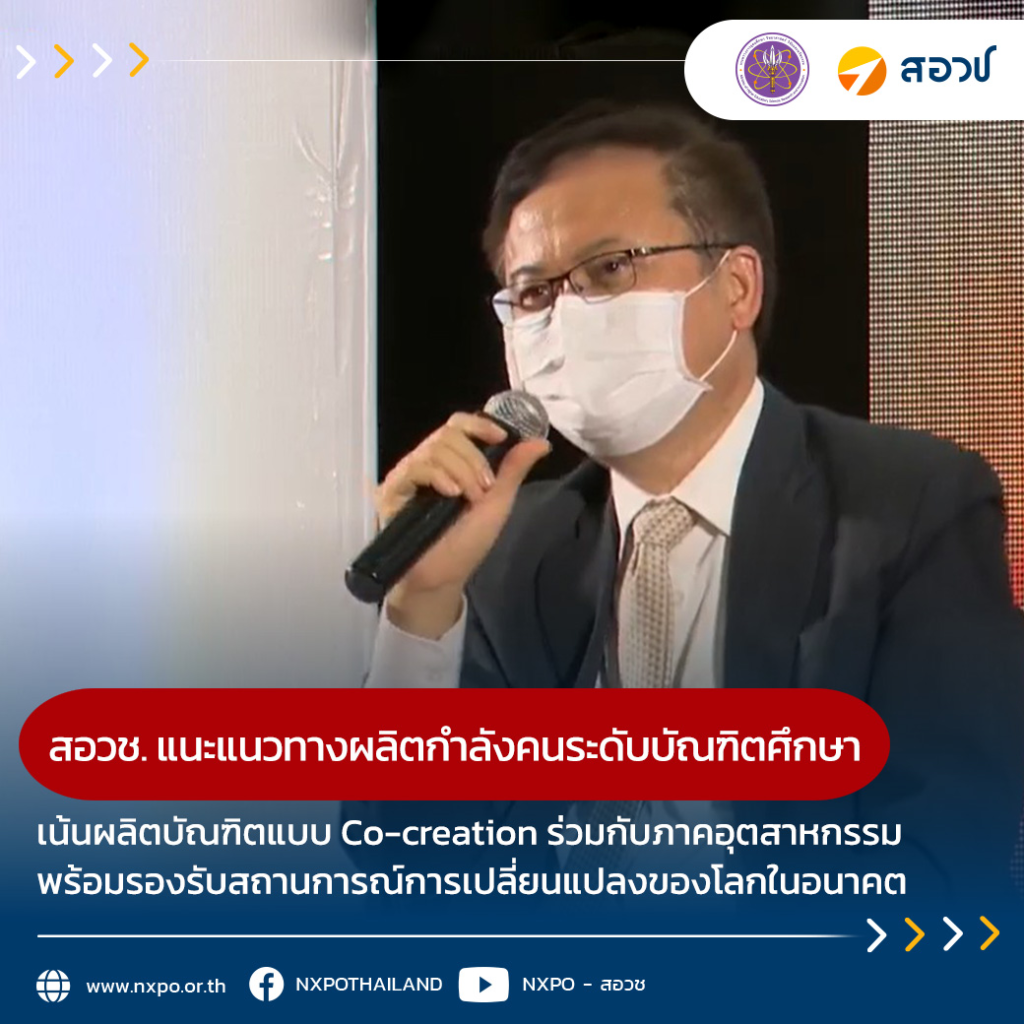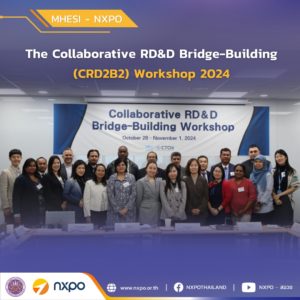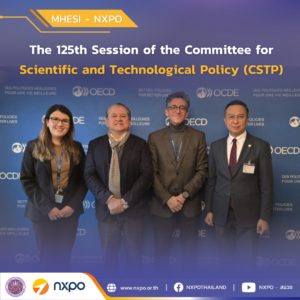
Dr. Kitipong revealed a prediction on the future labor market made by the World Economic Forum (WEF) that thanks to technology disruption, machines will displace some 85 million jobs by 2025, but at the same time, up to 97 million new jobs will be created in the areas such as digital technology, data science and automation. In addition, the shift from a traditional three-stage life to a multi-stage life means people will live longer, work longer, have more than one jobs in their lifetime and may work and study at the same time.

Despite an upward projection for high skill workforce demand, the future of Thai labor market is threatened by declining enrollment in graduate programs. This low enrollment is attributed to the pandemic and an exodus of talents to other countries with better incentive and more attractive graduate programs aiming to draw talents. Data from the Equitable Education Fund (EEF) shows that an educational inequality also impacts the enrollment in graduate programs.

NXPO has recently released a study report on Thailand’s higher education. The report recommends a paradigm shift in Thailand’s higher education system. For instance, attention should be placed on a lifelong education to support a multi-stage life. There is also a need to shift from a supply-driven to a co-creation education, engaging industries or employees in the design and delivery of education to ensure that the industrial demand is satisfactorily met. Examples of industry engagement in education include a Higher Education for Industry Consortium (Hi-FI) and a Research Development and Industrialization Capability (RDI) program. China’s new education model was given as an example. The new education model – focusing on competency and employability – was introduced under China’s target poverty alleviation program to enable students to get jobs right after completing the education.


Thailand Plus Package is a fiscal measure designed by the Ministry of Higher Education, Science, Research and Innovation (MHESI) to encourage companies to provide training to their employees and to hire high-skilled workers. The measure includes 250% tax deduction for expenses spent on staff training. Higher education sandbox is another measure recently introduced. The sandbox allows higher education institutes to experiment with new types of education program to reduce barriers and enable higher education reinvention.


Dr. Kitipong concluded his talk by encouraging universities to embrace and apply the new measures in order to produce high quality workforce to support the national development.







